#bamboo bookshelf
Explore tagged Tumblr posts
Text
Bookcases and Shelves | Stylish Bamboo Bookshelves for Your Living Room | Carefree Home Furnishings
#bookcases and shelves#bamboo bookshelf#stylish bookshelf#living room bookshelf#bookcases with cabinets#Carefree Home Furnishings
0 notes
Photo

Living Room - Rustic Living Room Inspiration for a small rustic enclosed concrete floor and beige floor living room remodel with white walls, no fireplace and no tv
#interior potted plant#coastal home#blue striped pillow#bamboo bookshelf#dark hardwood floors#light woven area rug
0 notes
Text
2025, week 3: Pai-ssimilation

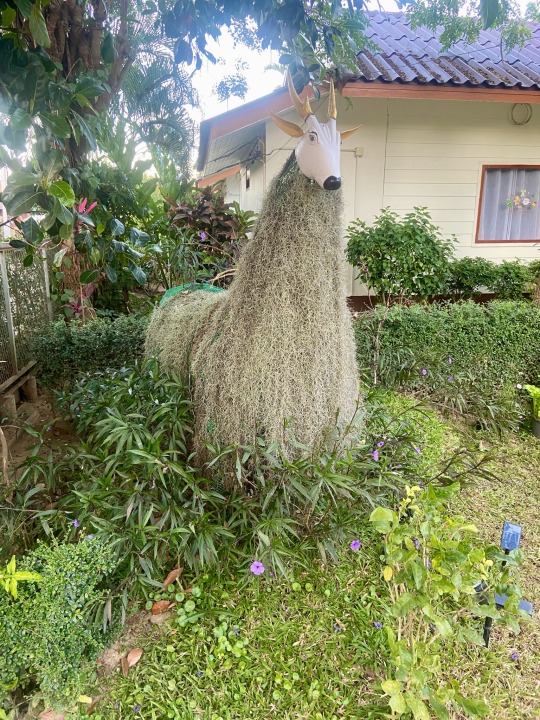
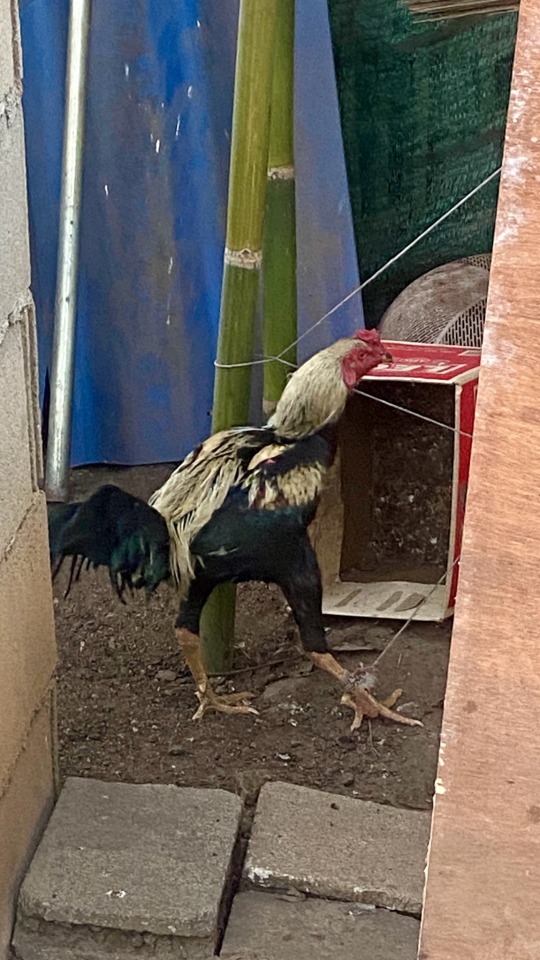
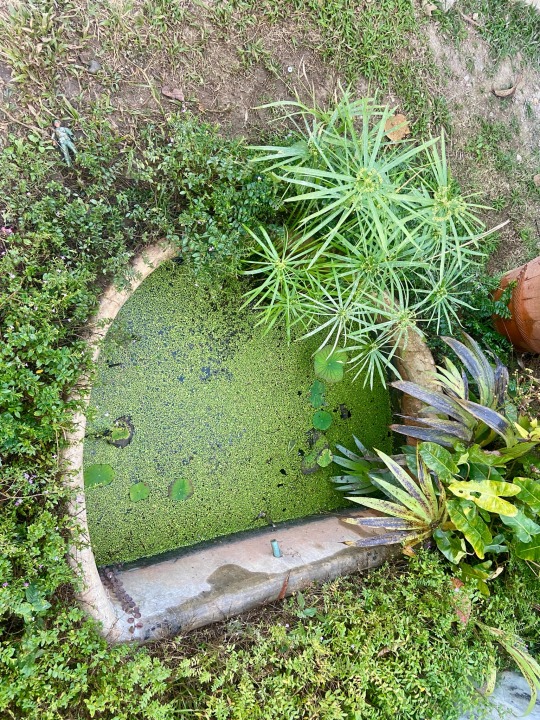
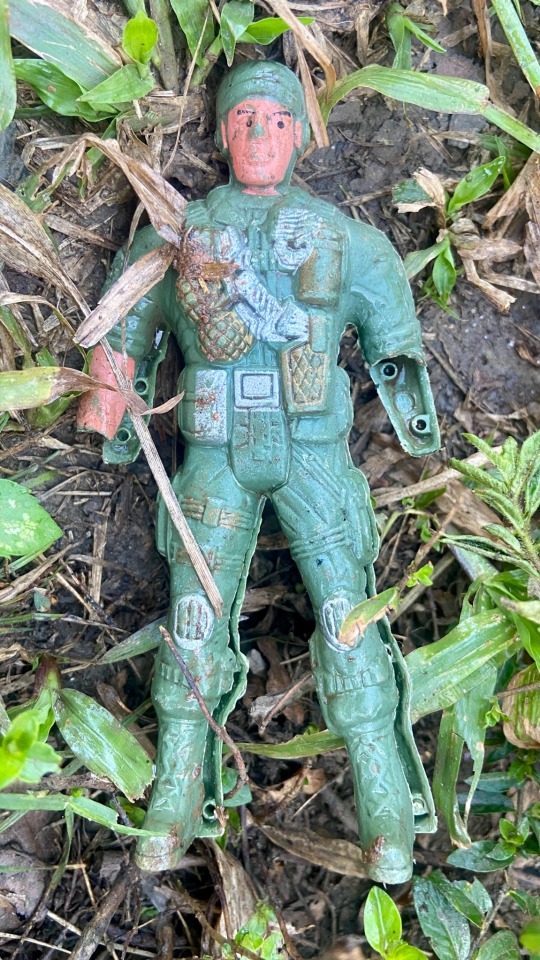
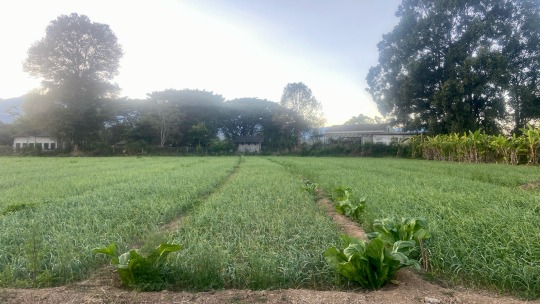
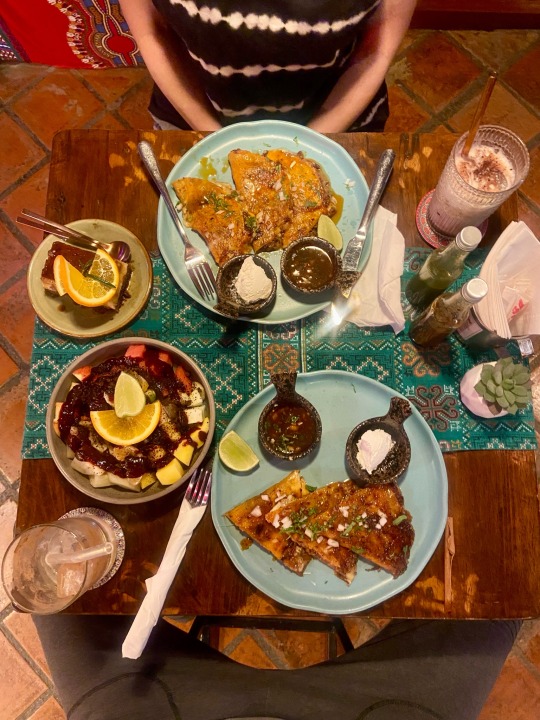
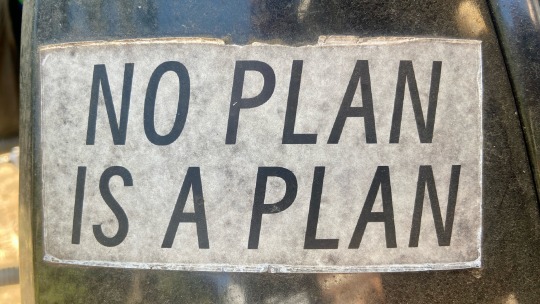
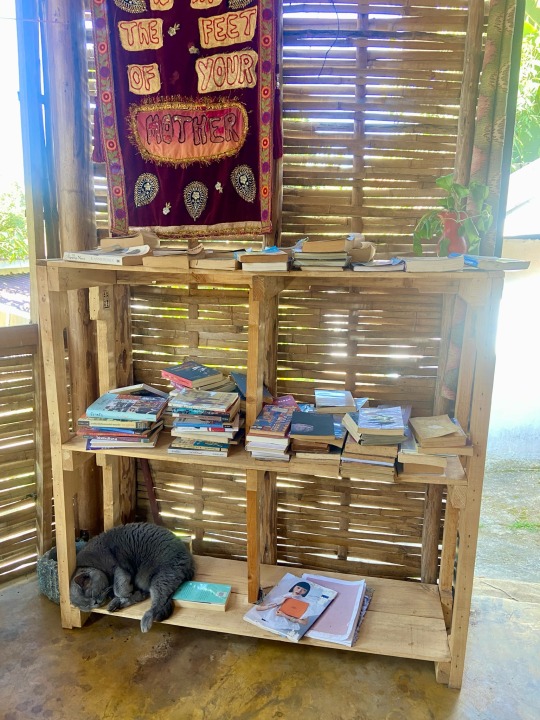
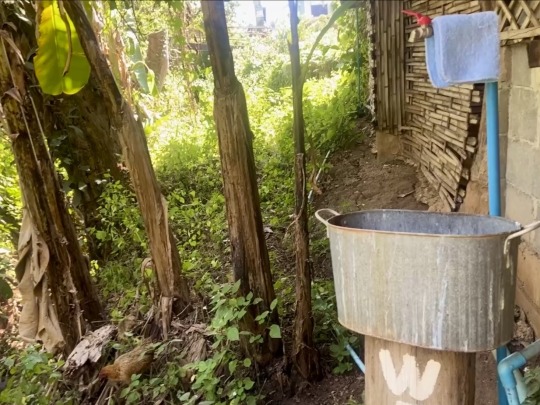
#burger queen#burger king#llama#bushcraft#cockfighter#rooster#moss#pond#moss pond#man down#soldier#gi joe a real american hero#gi joe classified#gi joe#pai thailand#pai#mexican food#no plan is a plan#grey cat#bookshelf#thailand#camping sink#rustic#bamboo flooring#🛖#southeast asia#agriculture#asian agriculture#the orient
3 notes
·
View notes
Text
pour one out for my tablet, finally broken after...... thirteen years
l m a o I was overdue replacing it but I love it so much ; w;
time to look at a replacement -- not doing wacom again because EXPENSE but maybe XPpen? No idea but I'm out of time now given the lineup of commissions I have and personal projects I want DONE.
#RAAAAAAAAAAAAAAAAAAAAAAA rip little buddy you worked for a long time#my little bamboo create#:pray: carried me through so much bullshit emotionally it's hard to let it go#[SLAPS THE TABLET] SO MUCH VENT ART ON THIS BITCH#maybe I'll still keep it for the memory and put it up in my bookshelf
3 notes
·
View notes
Text
I've talked before about how I think it's funny that so many of my f/os are associated with reds (or pinks) and/or greens. But it only just occurred to me that that's probably connected to earth tones (especially reds and greens, but also brown/black) being my favorite colors for things to be. Like my bedsheets and plant pots and furniture and random decorative items are mostly reds and greens (+brown). Fucking of course I'd also be drawn to characters who are those colors. Whatever.
#my COLORSSSS!!!!!#just bought a new plant pot today bc my bamboo is getting rootbound. it's red#matches my other red pot and sits on my red/black dresser beside my green chair#and my bed is brown sheets + red comforter / dust ruffle + green pillows + green top blanket (I sleep over my comforter lol)#grraaahhh!!!!!!!#even my desk is a reddish wood. so is my bookshelf#roz posts
4 notes
·
View notes
Photo

Great Room in San Francisco Great room - mid-sized contemporary dark wood floor great room idea with white walls
#pendant lighting#dining table#wall mounted shelves#round dining table#grey wall#bamboo cabinets#light wood bookshelf
0 notes
Text
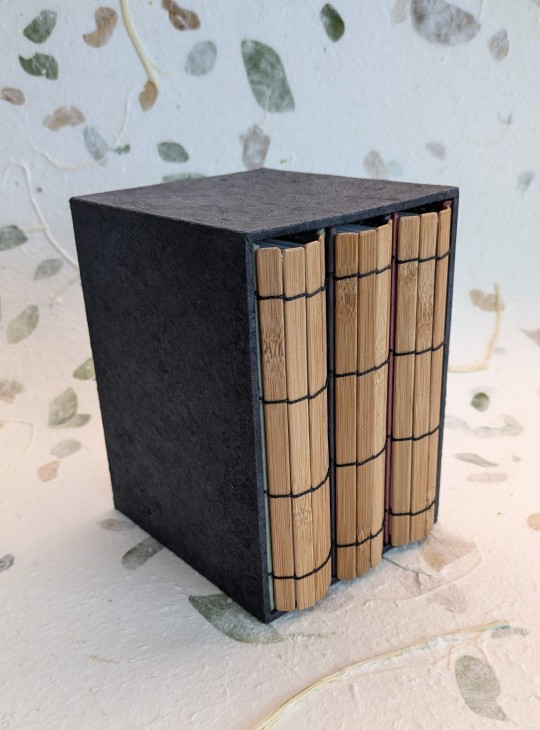
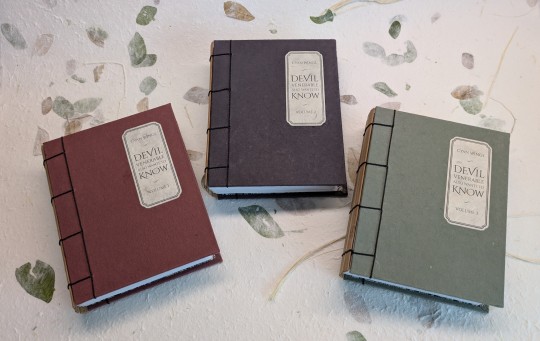
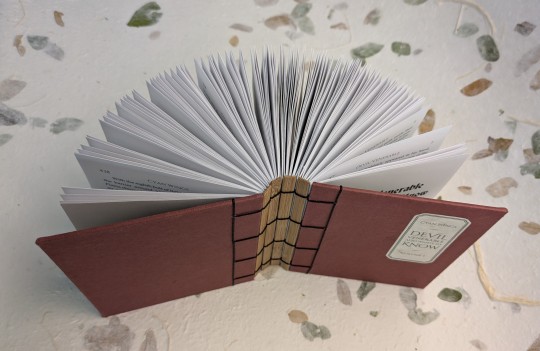
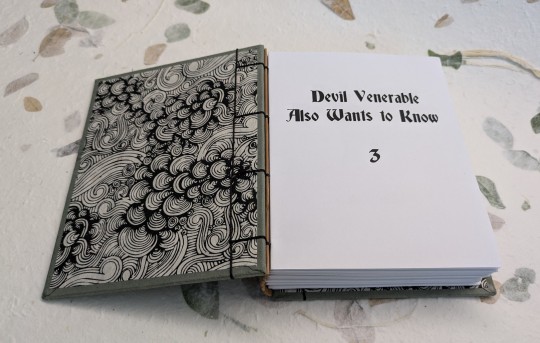
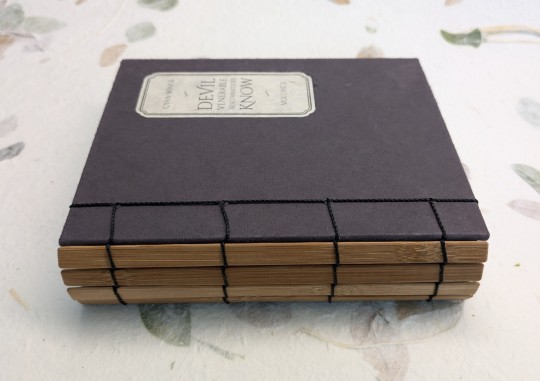
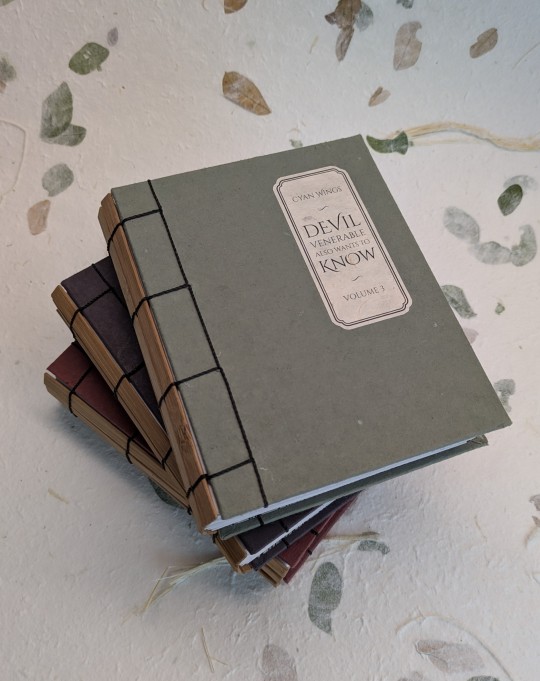
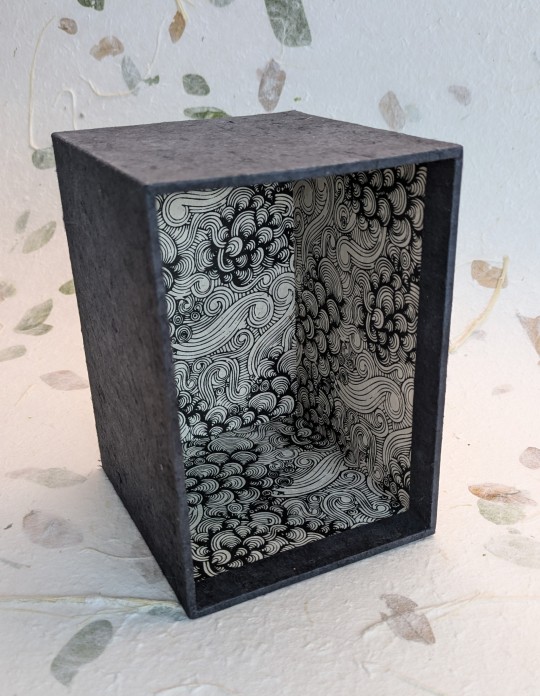
Fanbinding - Devil Venerable Also Wants to Know
This is my last round of experimenting with bamboo strips, for now at least. For these books, I used bamboo for the spine, and attached them to hard boards for the cover. The string going through the cover boards follows the look of a stab binding, but doesn't actually go through the pages. Instead, the folded pages are sewn to the strings on the spine with a narrower thread, in a variation of the secret Belgian/crisscross binding. The spine ends up being very flexible; it can lie flat or even fold all the way backwards, and although it ends up feeling kind of "loose," it's actually pretty sturdy. I made a box for the set to give them some more stability when sitting on my bookshelf.
Devil Venerable Also Wants to Know features a couple of plot-relevant books, so I thought it made sense to use with a binding method that called attention to itself. Many thanks to @spockandawe for letting me use your typeset!
532 notes
·
View notes
Text
Hold up. Is Andersdotter the witch of the Echoing Woods?
The Witch of the Echoing Woods is implied to escape her own storybook at the end of the artifact set story. (The golden butterflies on the cover are gone.)
She speaks of the story she's in as if she were its author, seeking a home for her characters.
The witch loves her golden butterfly ornaments. On that note, check out the bookshelf next to the Envisaged Echoes painting, and Wolfy's reward chest.
Also butterfly shaped: the book we interact with to enter an Imaginarium Theater battle. The front door. The sofa window.
And of course — and the thing that got me looking in the first place — since very early on, Genshin's artifact sets have given worldbuilding teasers for upcoming or current content. (5.0: early Natlan + Cataclysm-era Natlan. 4.6: early Natlan + Remuria. 4.3: Remuria/Fontaine + fairy tale. 4.0: Remuria + Cataclysm-era Fontaine. 3.6: Narzissekreuz + Khvarena. 3.3: Nabu Malikata + Gurabad. You get the idea.)
...except that 4.3's Nighttime Whispers in the Echoing Woods seems to be the same kind of standalone as Moonlit Bamboo Forest. Given that Andersdotter was to feature heavily in 4.7 and 4.8, this seems like the most plausible connection.
#andersdotter#hexenzirkel#genshin impact#genshin theory#nighttime whispers in the echoing woods#imaginarium theater
31 notes
·
View notes
Text
What If...
What if Xiao-Jiu found out why his Qi-Ge never came back for him?
-
Ning Yingying had noticed how her Shizun had never shown up to teach lessons and went to Cian Cao Peak to ask if Mu-Shushu could make sure her Shizun was okay. Hopefully it wasn't anything to bad but you never know. Either way, when Mu Qingfang got the message from one of his disciples he went to Qing Jing Peak.
When Mu Qingfang got to the bamboo house he knocked on the door, he couldn't hear anything from inside and the surrounding area was quiet.
"Qingqiu-Shixiong, are you there?"
...
"Forgive this one's intrusion."
The door was unlocked surprisingly enough, it almost never was. The inside of the bamboo house was a mess as he had never seen before; papers and reports layed torn up and stained red apon the ground while the table normally set up for tea and guests was split into mere wood shards. A bookshelf had fallen leaving scrolls unrolled on the floor and books open and folded oddly so the pages creased unevenly.
The scent of blood came quickly after seeing the mess, how it hadn't drafted out of the bamboo house was shocking. Qi seemed to permeate the air like a harsh storm, twisting and turning in the worst of ways. A qi deviation.
Rushing over to the master bedroom where a trail of blood leading in little circular drops had fallen under the door skewed open so little.
Shen Qingqiu laid there against the side of his bed, his normally pristine robes; never stained or crumpled opposite as blood dripped from his closed eyes like tears. His mouth stained red as if painted with a deep red rouge. Skin tearing along his arms above where his qi would flow throughout his body. The uneven lines of his membrians twisted in ways they never should have etched onto his pale skin.
The shock cleared quickly enough at least, to many years seeing patients in horrible states does nothing to help the mind. Kneeling down besides his martial brother's rapidly cooling body quickly as he grabbed his wrist and started to force his qi through Shen Qingqiu's torn and twisted membrians. His body was littered with old wounds covered by his cultivation. This was the first time he truly ever got to see his martial brother's condition as he always had avoided any form of Cian Cao's treatments and required checks.
It truly was no wonder his Shixiong had tried to hide all of this if he wanted people to not pry at his past. These scars were to old and too new at the same time, it seemed as if there wasn't a bone or muscle in Shen Qingqiu's body that hadn't been broken or torn.
He wasn't sure how long it really had been before he could see his Shixiong's core stop flickering as he continued to force his qi into Shen Qingqiu's body. He could tell that it no longer was light outside the window but that was all.
Picking up his martial sibling gently, one arm braced against his back while the other was holding under Shen Qingqiu's legs. He could hear faint muttering coming from his martial brother's barely parted lips. It was faint enough that even with his better hearing thanks to his cultivation he could just barely make out what Shen Qingqiu was saying. Not that hearing it actually helped to make sense of it? "Seven and nine"? Who was "Qi-ge", if Shen Qingqiu was calling out for him surely someone close to him, right?
All to be figured out later. Making sure to be careful not to jostle his shixiong in his arms as he made his way back out of the bamboo house the muttering eventually stopped. By the time he had managed to get back to Cian Cao Peak his head disciple was already waiting for him.
"Shizun. Should I send a few disciples to get a room ready for Shen-Shufu? He seems to be in really bad shape."
Mu Qingfang nodded, "Yes, thank you. And if you can, please go through our records and see if you can find Shen-Shixiong's file." He needed to know what caused his martial brother to have his cultivation so ruined and why his Shizun never noticed or stopped him from cultivating. God, this is practically just as bad as Zhangmen-Shixiong's damn sword... Wait.
...
By the time Yue Qingyuan had arrived at Cian Cao Peak a few shichin later, Mu Qingfang had already set up his martial brother into one of the medical rooms directly next to his office. His head disicple had found Shen Qingqiu's file surprisingly quickly. Not that it really helped all to much. Summed up his file consisted of almost nothing.
| Name: Shen Jiu
| Courtesy Name: Shen Qingqiu
| Joined Qing Jing Peak after being found by Yue Qi, now Yue Qingyuan during the Immortal Alliance Conference. No other information given about his past.
| No past medical records
| Notes: Why is it so hard to get this brat to stay for an examination????
Mu Qingfang recognized his Shizun's rather sloppy writing of course in the notes and descriptions. This was probably written some time at least a bit before the Qing generation became official Peak Lords rather then just Head Disciples. There wasn't anything though that could really help...
Mu Qingfang heard footsteps approaching the room and the door opening up moments later by one of his disciples. One who left the room rather quickly the moment the Sect Leader stepped inside. Unable to see Shen Qingqiu just yet due to the thin screen blocking his bed from view of the door.
"Zhangmen-Shixiong, I appreciate you coming here. Please take a seat." Leading his other martial brother to the table nearby he could see the other's confused glance to the screen blocking a patient's bed. "Of course shidi, but may I ask what brought on your request to meet to soon? I am sure you are aware of the Peak Lords meeting happening just within the next few days." Yue Qingyuan asked with a confused smile, tilting his head to the left slightly, it reminded him far to much of a confused puppy really?
"Of course, I'm well aware of the Peak Lord meeting, I merely wanted to ask a few questions to help out a... patient." Mu Qingfang replied calmly as a different disciple entered the room quickly, setting down a tray with three cups and a pot of already brewed tea. Leaving after putting the cups down in front of the two Peak Lords and the third cup to the other side of the table.
Yue Qingyuan looked at the third cup with furrowed brows, the confusion evident on his face both for Mu Qingfang questioning him of all people about a patient and why there would be a third cup if they where the only too there? Well, not counting whoever was behind the screen but they haven't made a sound nor any sign they were truly there, was it just a mistake?
"Shixiong, was does the name 'Qi-ge' mean to you, if anything at all?"
His hands froze reaching for the tea cup in front of him. Looking at his shidi in shock. Had Xiao-Jiu said- no, he wouldn't have! Where had Mu Qingfang heard that name? He knew to ask him about it, how did he find out, did he find out, what-?
"Zhangmen-Shixiong! Snap out of it, you are going to go into a qi deviation!"
Oh, right... He didn't even notice. His sword was practically shaking in it's sheath with flickering qi.
"How... How do you know that name?" He asked, his voice hoarse and shaky, it shouldn't have had to been, but... No one other then Xiao-Jiu should have known, no one. How did-
He hadn't even noticed Mu Qingfang sigh as he stood up from his seat and moved over to the patient bed. Sliding the screen over so the person in the bed was fully exposed. He didn't notice until he looked up and saw him.
Xiao-Jiu... He was dressed in simple medical robes that opened just enough around his chest to show old scars. Old scars that should have been covered by his cultivation. There were to many... New scaring paved through red and white above his twisted membrians on his arms and hidden past to where the robes covered. Whip scars down his legs and old dog bite markings he knew so intimately well from the streets. A branding, one just below his collarbone. He knew all too well sicne he had one as well before his cultivation had hidden the scars. A slave branding, it showed you had filthy blood, that no one should ever go near you. That you were merely scum of the world worth less then dirt.
"Shen-Shixiong had a qi deviation and nearly died inside of the bamboo house on Qing Jing Peak. During his time unconscious he had tried calling out two things. 'Seven and Nine' and 'Qi-ge'. His cultivation due to his qi deviation has been damaged worse then before."
That caught Yue Qingyuan's attention, Mu Qingfang could tell as his martial brother's eyes tore away from Shen Qingqiu's sleeping form. Confusion, regret, guilt, pain, regret, his face was a mix of emotions. As if he both blamed himself for everything in the world and the world had just blamed him back.
#fanfic ideas#shen jiu#mu qingfang#yue qingyuan#Mu Qingfang does not get paid enough#Cliffhanger ig??????#MY BRAIN AINT BRAINING WITH IDEASSSS#“What If...” Part idek what anymore help#Broski i'm suffering#qijiu#mujiu#I think??????#Idkkkkk broooooo#LEAVE THOSE DOORS UNLOCKED KIDS!!!#Totally!#(Don't listen to me actually kids - lock your door please 😅)
51 notes
·
View notes
Text

RAMBLING AND ANALYSING MY FAVOURITE CHARACTERS' BEDROOMS (fair warning this is a LONG post, so please read my hard work? /j ^^):
I love how they designed Sam's bedroom and the little details it gives us about him. Right off the bat, it's very organized and clean, which we know, considering how much of a neat freak he is. I also love how there's a ready tea set on the side table, love ya for that Sam<3
AND THE MOUNTAINS PAINTED ON THE WALLS? I've heard snow leopards like to sleep with a view, and his painting the walls with mountains AND taking the room with a view is definitely in character! Also fair to note that his pajamas have clouds too!
Back to the room- the amount of books on that bookshelf (which I noted is separate to the bookshelf in the living room) makes it clear that Sam is most definitely, if not a bookworm, a book lover. Especially since he's clearly reading a book before bed. There's an alarm too, which again taps on his organized side.
Now onto Kit's room!

Right off the bat, we can see there's a clear difference between her rooms and Sam's- it isn't that organized. You can see her things all over the place, (and it looks oddly aesthetic? only Kit can make a mess look good!) with the books and paper strewn all over the floor. Sam's alarm clock told us he has a proper schedule, but that isn't the same for Kit, I.e her toothbrush and paste are just on her windowsill. There's poster and sticky notes all over the wall, which I'll get into soon. The FAIRY LIGHTS? My girl has taste :D

Looking closer over here, we can see just how much Kit loves strawberries. On her snow/swamp cycle, on her bedsheets, on her pajamas, on her signature... I could go on.
The clock on the wall tells us it's 10:06 or 10:07 PM, that's pretty neat.
Looking at the left, there's that ADORABLE sticky note with a drawing of CUBBY! Yes, those too still interacted after Chapter 3!! There's also a poster of the Mice Squad, since we know that they basically have their own duo-band and is very popular in this universe! And YES, Kit is their number-one fan. It's just right. There's other sticky notes in this shot, (it's not very clear in this picture) one of a star, some word in their 'letters' we see in a show and a >< face- this isn't important, just felt like pointing it out.

MUCH clearer view of all the sticky notes- they are everywhere, with lots of silly doodles! There's that one poster on the far left that;s new though, wth the bird on it. If I had to guess, it could be a movie poster? I have no idea.

I swear I'm done with the screenshots. But I just had to point this out.
There's a pot with a bamboo behind Sam along with another poster. What does the bamboo represent though? Unlike Sam's mountains, it doesn't seem too be too tied to Kit. I honestly would have loved to see a cactus here instead, yknow?

Okay, I'm not done with the screenshots. But admire this wonderful picture of Kit! Anyway-

It's his bedroom again, but right off the bat we get some added info. On the far left there's a box of Clu-bots!! They are most definitely his children <3 There also a Bonsai plant and a mirror, which we saw just how he uses in the Disaster in the Dust Spa :D
OKAY IM DONE YOU SHALL SCROLL DOWN NOW! You gotta appreciate just how much detail and love they put in their rooms. It's really sweet, and it shows their characters really well.
Thanks for coming to my TED talk :)
12 notes
·
View notes
Note
-> An elderly female demon entered Thieves' Den, staring around with curious eyes. This wasn't HER Thieves' Den and she knew it, but she couldn't help but be curious. - @windswept-ocs [WOODSTAFF]
Glory is rearranging things in their semi-outdoor office, their second set of smaller insect arms flexing slightly as they move some things from their bamboo bookshelf.
Lanterns hang overhead, the furniture is made of bamboo & light colored woods, earthy & natural decor adorning the bookshelves & tables. There are weapons & other sharp objects displayed on the wall, & flora in the shape of the Thieves Den logo.
They don't seem to notice the other leader. Glory is also in a less casual 'mode', their blindfold off, being discarded on their desk.
33 notes
·
View notes
Text
I actually do a lot of research and am collecting what may one day be an entire bookshelf's worth of reference books, so I thought I'd share one. This is my pride and joy, at least as far as research goes:
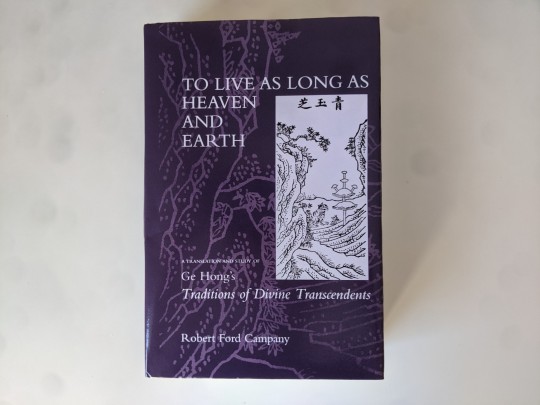
To Live as Long as Heaven and Earth is a translation of the Shenxian Zhuan, a series of biographies of Daoist immortals by Ge Hong. The (extensive) introduction by Professor Campany also includes a lot of the translator's own research, drawing on various sources in order to provide a good overview of practices attributed to Daoists in common folklore. If you're interested in the Xianxia and Wuxia genres and their origins, I think this is an invaluable English-language text. Its focus is entirely on traditional beliefs, but through it you can see just how much of the modern fantasy genre in China is based entirely on traditional folklore.
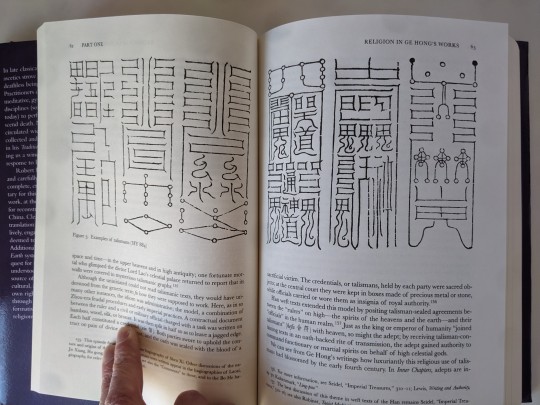
The images of talismans, for example, are extremely familiar to any viewers of modern fantasy dramas or donghua. These look very similar to the talismans we see in the Modao Zushi donghua, don't they?
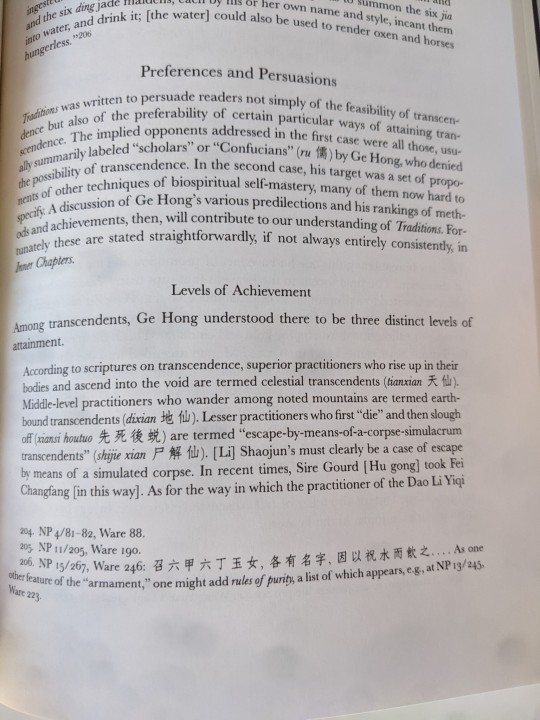
This is a really interesting little section describing levels of ascendance. It's a lot simpler than modern novels with their million stages of core formation, isn't it? (Though, to be fair, most novels I read are by authors who don't care to get into that level of detail and focus on characters and storytelling, thank goodness!) The 'tianxian' sound a bit like heavenly officials in more recent stories, don't they, whereas the dixian are regular immortal cultivators who still live on earth. The use of shijie (corpse simulacrums) meanwhile, seems to mainly be maintained as a means of faking one's death, not as a means of escaping the notice of the officials of the underworld!
The main paths of immortality outlined in Ge Hong's work are: internal cultivation, external cultivation (alchemy), the arts of the bedchamber, and diet. The first three are very familiar, but I've noticed that diet-based cultivation shows up much more rarely in modern stories. I can only immediately think of Ye Baiyi from Word of Honour, who begins to age again after descending from the mountains and imbibing mortal food once more.
One thing I found interesting is that most accounts of immortals flying either depict them doing so under their own power, or placing a talisman within a bamboo staff and flying on that (or sending some poor soul on a sudden trip across the country!). Flying swords seem to be a much more modern convention.
One thing that's really amusing to me is how much energy the author (Ge Hong, not the translator) dedicated to poking fun at Confucius and Confucianism. Even though the three major religions eventually became known as the Three Teachings and are in modern terms viewed as very harmonious and complementary, historically there was often a huge amount of religious tension. Confucians and Daoists bickered with each other a lot, and then Buddhists got into the fray as well as Buddhism became more and more popular in East Asia. While Buddhism was present in China in Ge Hong's time, it had yet to reach its later popularity; this is probably why Buddhism is barely mentioned in Ge Hong's writing. There are a few indirect references and borrowings from Buddhist tales, and Professor Campany posits that some were intentionally used in competition with Buddhism, while others may have been added by later compilers/transcribers of the text who were Buddhists themselves.
A lot of Cnovels depict this sort of religious tension (Thousand Autumns is a good example), and it's really interesting to see that in these translated historical texts. Even though there are plenty of texts I can't get access to and/or wouldn't be able to read in the original language, there is a huge amount of English-language and translated scholarship on Chinese history available. A lot of it is fascinating to read from a perspective of a fan of Chinese fantasy, since the genre draws so heavily on real history and folklore.
122 notes
·
View notes
Note
Hi! 💕
For the ask game:
orchid, bamboo, mahonia, sage and nutmeg
Sorry its a lot lol, you can just pick your favorites lol.
hi!! i love having multiple to answer <3
send me asks!!
orchid: what's a song you consider to be perfect?
i'm a slut for hozier first, human second
bamboo: do you change into a different outfit when you get home?
not usually tbh. i usually keep the same stuff on all day unless i've suddenly gotten really uncomfortable and/or dysphoric at some point in the day.
mahonia: what place, thing, activity inspires you most and how do you express yourself when it does?
oooh i love this one! honestly my friends inspire me most! like seeing the art they make (drawing, writing, poetry, etc) always makes me want to do art! especially when i read the stuff my friends write i'm always like "oh maybe i should get back to that piece i haven't touched in 2 months"
sage: what medium of art is the most touching to you? why do you think that is?
music 100%. especially when experienced live. there is something so raw in song writing i think, the way feelings and pain and love and joy can be wrapped in lyricism. it sounds nice when you're just hearing it, but when you truly start to listen it starts hitting you deeper and harder in your chest.
live music especially feels so personal and intimate, even in a large theater. being in a room full of people who know all the lyrics, singing along to these songs about love and joy and loss and the feral energy of life is enough to make me cry in a really human way.
nutmeg: how's your room decorated? do you have a specific theme or style going on?
i do not have a cohesive theme or style in any aspect of my life lmao. one of my friends described my room by saying that "it looks like the inside of [my] brain" which has always stuck with me. i have drawings up on one wall and song lyrics printed on metallic painted cardboard above my desk. there's a movie poster for star wars by my bookshelf and a dune poster next to a foldout magazine poster of the jwst pillars of creation. i have crucifixes adorned with rosaries above my bed because i'm not catholic but they give me some twisted form of comfort and they're next to the photos of my friends and i.
it's messy an incoherent but it's so very Me.
2 notes
·
View notes
Text
My Perfect Hologram (Not Meant To Be, But Thank You)
Recently hurt, lost, and afraid
I saw you standing over there
Appearing to come to my aid
Though seemingly part of a pair
“Just friends” I hoped to myself
So easy to talk and relate to
Like a rare read on a bookshelf
Perusing veins of each other’s bamboo
I though that you could be it
The other part of my cracked half
It was indeed her that you were with
But thank you, my perfect hologram
#love poem#not meant to be#thank you post#poetry bog#secret poetry#poetry#writing blog#love poetry#iwrite
3 notes
·
View notes
Text
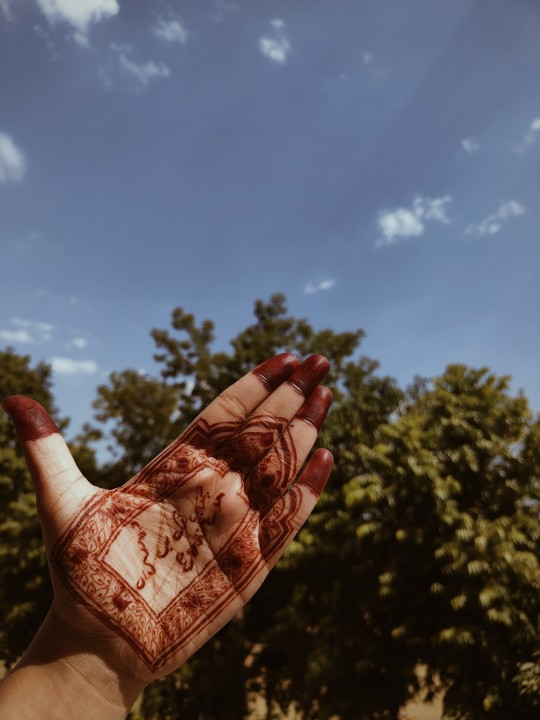
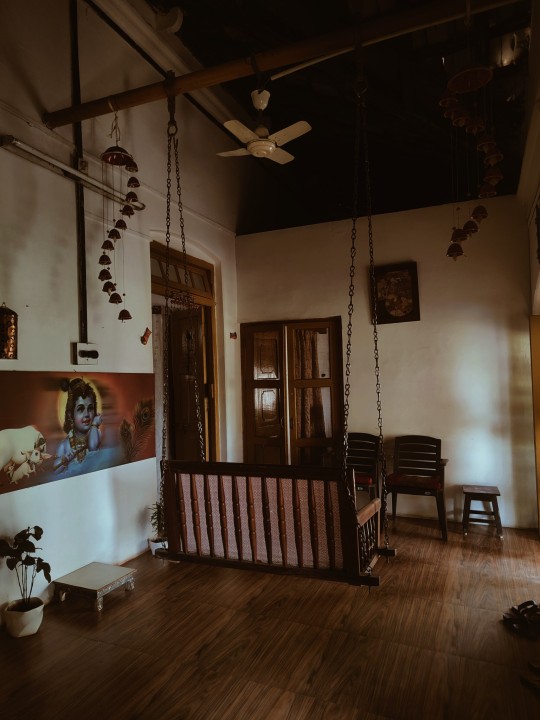
The shutter sound snaps and captures the linear streams of golden drenching the luscious green in an almost palpable sheen, reminding me of the treacles of honey being deposited on awaiting squares of flakiness. The scenery mimics my iris, where I let it linger for a little longer. Walking into the room, the dreary does not pass my sensibilities, and I step back out to let the warm currents pierce me once again.
The following day, my fortune takes a bow and I visit a dwelling that itself dwelled in my heart since I was child. My heart skips a beat upon witnessing it in its full glory; perhaps it went back to the time the residence took foundation. The red tiled roof against the bleach white walls, like the dusk bleeding its farewell on a blanket of fresh snow. Creepers mark the path, and the rows of petaled jewels usher me into that archive of an abode. Stepping in, I’m first greeted with the scent of limestone, followed by a waft of jasmine, perhaps from the incense, perhaps from the silver braid of the woman of the house. The space is suspended in a time before, and I can feel myself regress to a cooler summer with every passing second. The shelves around the room are chock full of reminders; reminders to hone, reminders to seek, reminders of benevolence, reminders of spirit, reminders of patronage, reminders to create, and reminders of decay. Each merchandise on those stone shelves loudly boasted of its fineness; the meticulously weaved threads, the highly refined and finished edges, the laboriously carved impressions, the tanned leather beaming with its glossy surface. If you kneeled closer to the ground, however, perhaps to feel strands of a bamboo basket on your fingertips, you would hear the quiet pleas running through these prideful declarations; the plea to be saved from extinction.
A tinkering from the adjacent room grabs my attention, and I float towards it as if in a state of hypnosis. My eyes bear witness to a figment of my imagination; the sunrays from yesterday tip their hats through the windows near the ceiling, greeting me once again in an unbending, militant fashion. They lay to rest, as if spent from their journey of lightyears, on the glorious wooden swing that resides in the middle of the room like an unyielding but nurturing patriarch. Two hangings of earth lamps flank the swing and sway lightly in the breeze entering the room, making that soft tinkling noise, mimicking the rightly analogous fireflies. There is a painting of an infantile holy figure on the left wall, its blue striking against the copper lap that is perched right above it.
As I was leaving, I noticed another characteristic of houses from the bygone era: the high ceilings, which make anyone standing under them feel invincible, make them feel as tall as the walls themselves, and offer them plenty of space to explore and make mistakes. It is exactly the kind of place tradition and heritage would prosper in. While I walked out with my arms full of many commodities, I also walked out with a lingering question; these symbols of craftsmanship that will now adorn my bookshelf, that adorn the dresser of another, and that adorned the rooms of that fantastic house, will they get lost in time or passed down with it? Do they represent the time gone, or how it stands still while the world goes by?
@hindumyththoughts (since you asked to be a part of my taglist :D)
#for everyone who can read urdu#ik the writing in henna is misspelt 💀#pls dont come for me my boyfriend has teased me enough 😀#spilled ink#dark academia#dark academic aesthetic#light academia#desi academia#writing#writerblr#spilled words#literature#my writing#heritage#destiny's rainboww
6 notes
·
View notes
Text
I think i am. bamboo ambient orange lighting midcentury bookshelf tea leaf navy blue dark brown wood finish humid with dark skies girl
2 notes
·
View notes